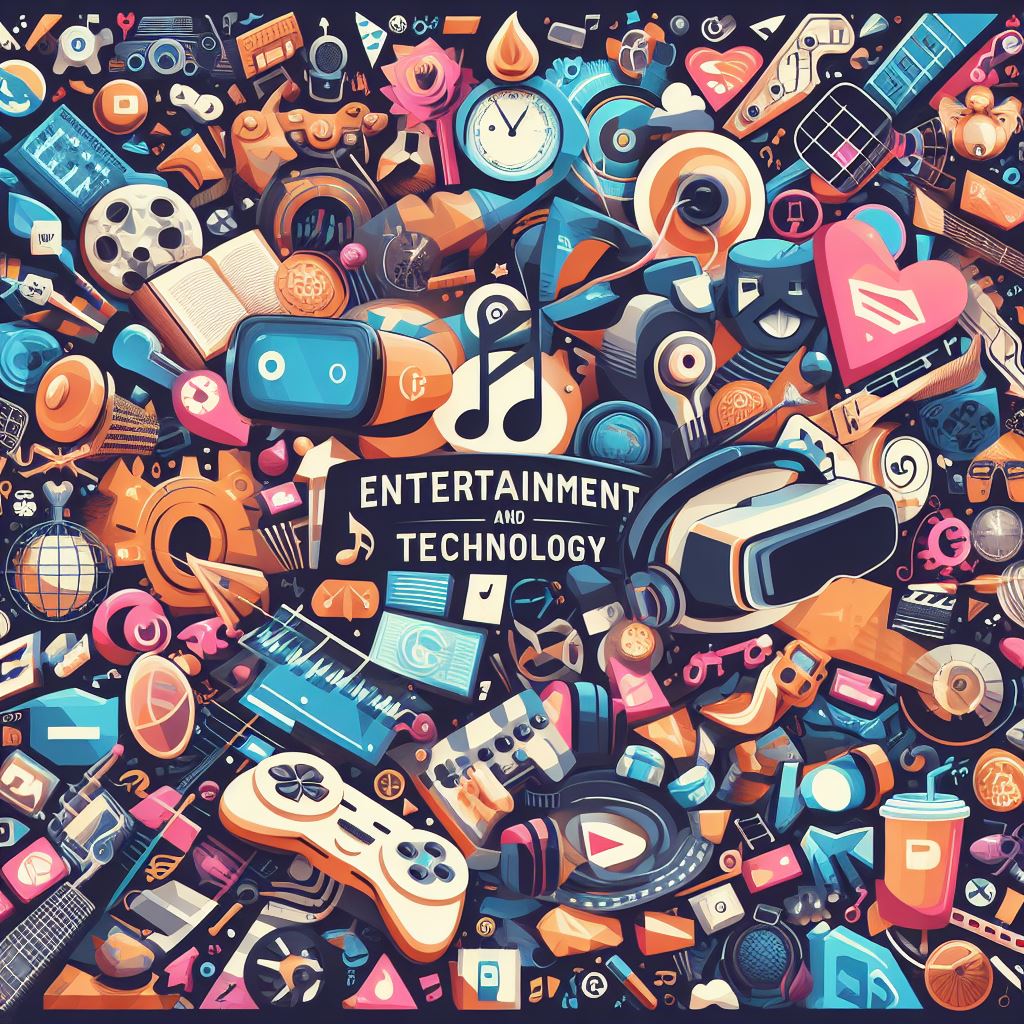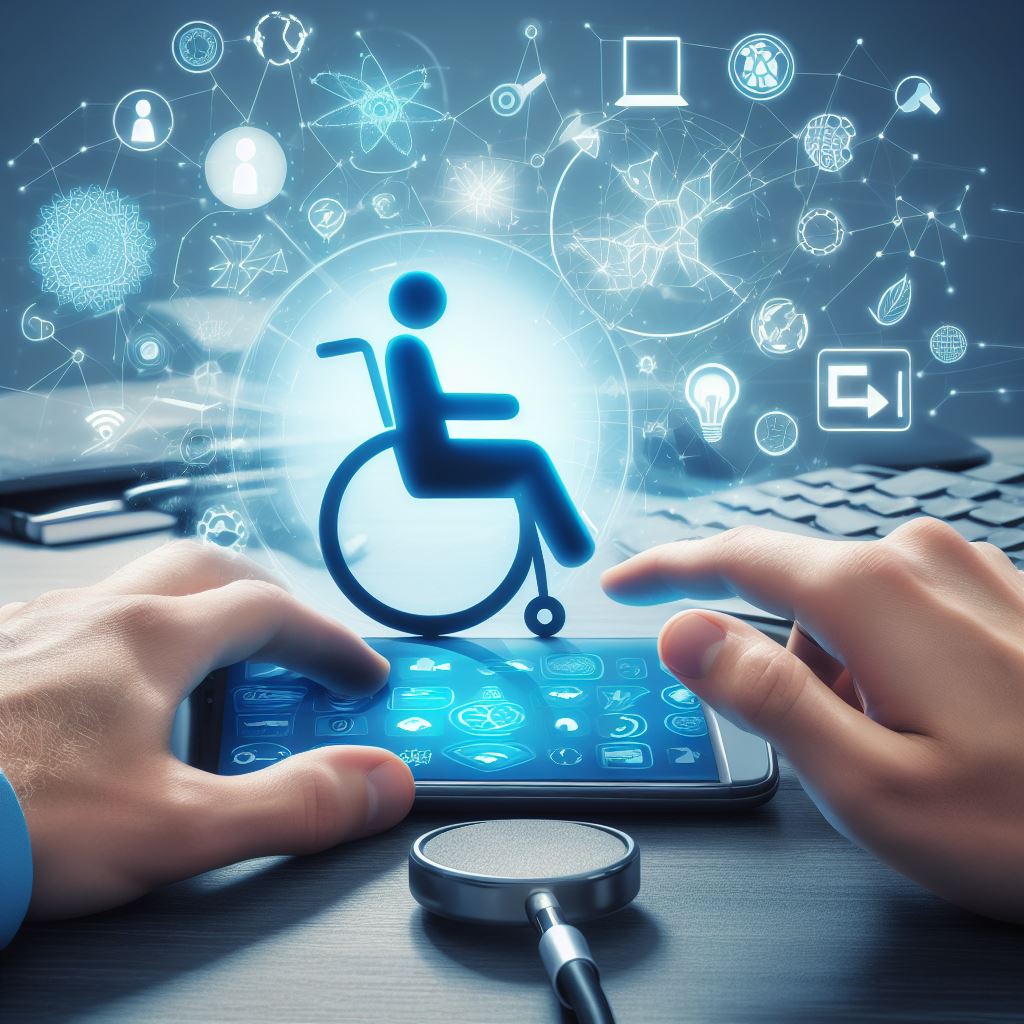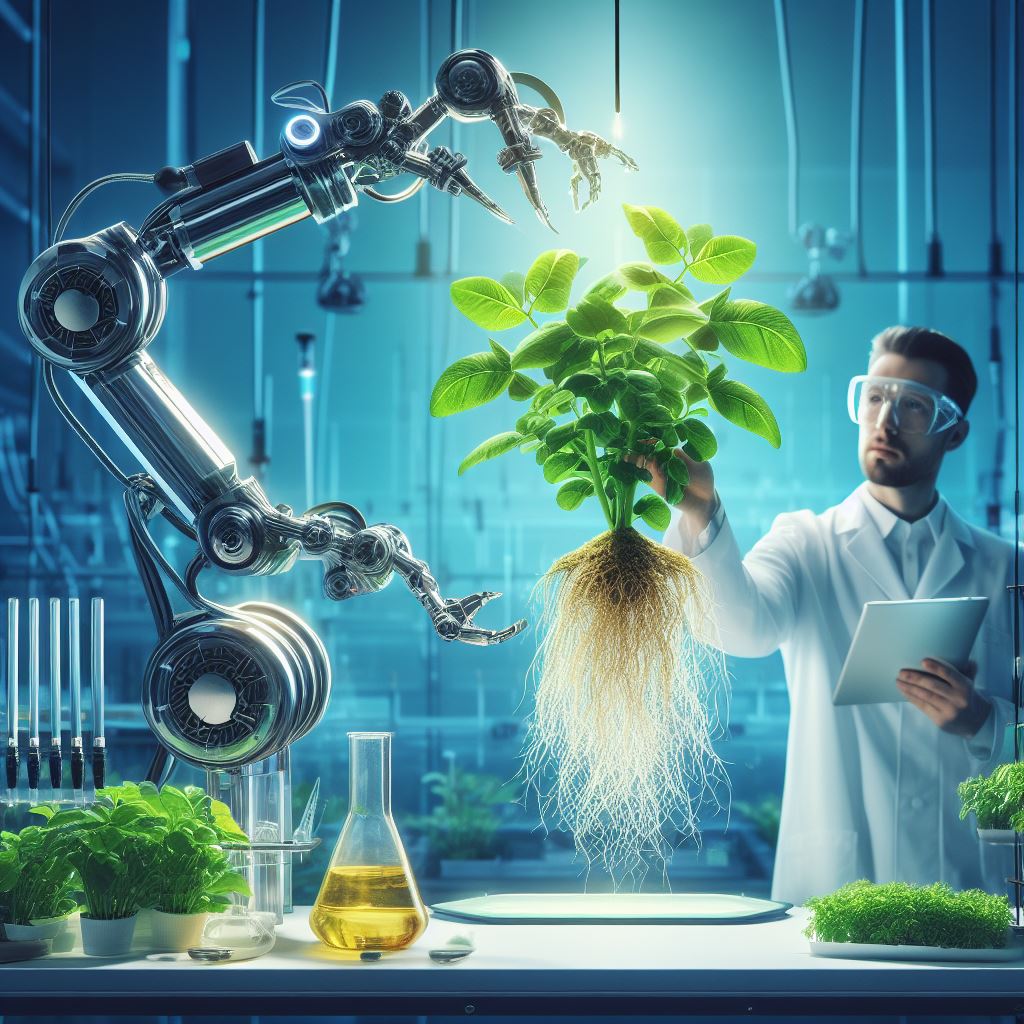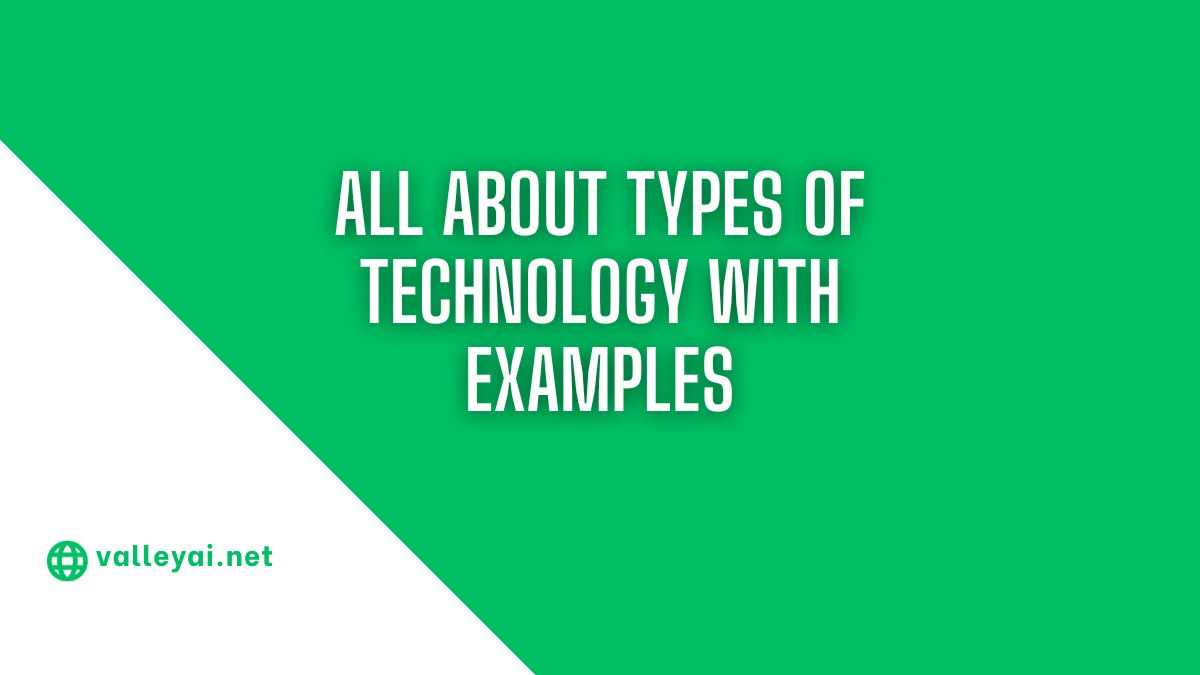In this blog post, I will provide you with an overview of different types of technology that are transforming the world. From understanding the evolution of technology to exploring cutting-edge fields like AI and superintelligence, we have it all covered.
I will discuss how technology is impacting various sectors, such as education, agriculture, hospitality, and more. Also, we’ll delve into the impact of communication technology and entertainment tech on our daily lives.
Technology is an ever-evolving field that plays a crucial role in shaping our lives, impacting every aspect of them. It has been changing the way we communicate, entertain ourselves, do business, and even approach healthcare.
So whether you’re a tech enthusiast or just curious about the latest trends in technology, this post will help you stay up-to-date with the latest developments in this fascinating field.
Understanding the Concept of Technology
Technology encompasses a wide range of scientific knowledge and technical means, applying them in various areas of human life. It has significantly advanced, shaping the way we live, work, and communicate. From aerospace engineering to medical technology and military technology, it plays a crucial role in industries and can overlap into different areas. Understanding the use of science and finding efficient ways to incorporate it into technology is essential in today’s digital world.
The Evolution of Technology
Technology has rapidly evolved, revolutionizing communication, healthcare, and business. It has come a long way from mechanical technology to advanced artificial intelligence. It improves safety features, enhances data storage, and promises exciting advancements in the future.
How Technology is Shaping Our Lives
Technology has become an integral part of our daily lives, impacting how we live, work, and socialize. It has transformed communication, facilitated efficient business practices, and enabled better healthcare. Additionally, technology has opened up new educational opportunities, making knowledge accessible to all.
Related: Tech’s Wellness Benefits
What are the different types of technology?
There are various types of technology, including information technology (IT), biotechnology, nanotechnology, robotics, artificial intelligence (AI), virtual reality (VR), and more. Each type of technology serves different purposes and has unique applications in various industries and sectors.
An Overview of Different Types of Technology
Technology encompasses various types, each serving different purposes.
Artificial intelligence revolutionizes industries with intelligent robots and software development. Information technology plays a vital role in data storage, computer systems, and digital marketing.
Space technology enables space exploration, satellite communication, and scientific research.
Environmental technology focuses on sustainable solutions.
Construction technology, which is the application of computer systems and software to the construction processes, as well as architectural technology, is also a crucial type of technology.
Exploring different types of technology and examples reveals the vast potential of human innovation.
Artificial Intelligence and Its Impact
Artificial intelligence (AI) is an advanced technology that mimics human intelligence. Using complex algorithms, AI systems can perform a wide range of tasks, from data analysis to decision-making. With applications in healthcare, business, and robotics, AI has the potential to revolutionize industries, improve efficiency, and enhance customer experiences. As AI continues to advance in the fields of communications technology and computer science, its impact on society will be profound.
The Role of Information Technology
Information technology (IT) encompasses the use of computer systems to store, retrieve, and transmit data. IT professionals play a crucial role in managing computer networks, software development, and cybersecurity. IT enables efficient communication, data analysis, and streamlined business operations. It is an essential component of modern organizations.
Exploring Space Technology
Space technology encompasses technologies used in space exploration, satellite systems, and aerospace engineering. The aerospace industry relies on space technology for advancements in flight systems, navigation, and communications.
It plays a crucial role in understanding the universe, studying celestial bodies, and space flight, including the development of fighter jets and nuclear weapons. The development of space technology continues to push the boundaries of human knowledge.
Entertainment and Technology: A Powerful Duo

The entertainment industry has embraced technology, revolutionizing how we consume media. Virtual reality technology has transformed gaming, film, and interactive experiences. Innovation in digital entertainment has led to new ways of storytelling and audience engagement. Technology has made entertainment more accessible, with streaming platforms and digital media. The influence of technology on entertainment continues to shape the industry.
The Rise of Virtual Reality
Virtual reality (VR) technology immerses users in lifelike environments, offering innovative ways of storytelling, exploration, and communication. It is used in gaming, training simulations, architecture, and education. With advancements in VR, its potential applications continue to expand, bringing new possibilities to entertainment and beyond.
The Influence of Technology in Modern Entertainment
Technology has revolutionized entertainment, creating new opportunities for content creation, distribution, and consumption. Streaming platforms and digital media have transformed how we watch movies and listen to music.
Social media sites and digital marketing play a crucial role in promoting entertainment products. With technology, personalized experiences, and interactive engagement are now possible, shaping the industry in innovative ways.
The Significance of Medical Technology
Medical technology advancements improve healthcare outcomes by assisting medical professionals with accurate diagnosis and treatment. Computer systems enhance operational efficiency and data storage. Medical technology is crucial for advancing healthcare professionals’ knowledge and skills, leading to innovative ways of patient care through the application of scientific knowledge.
Innovations in Medical Technology
Artificial intelligence (AI) is transforming medical technology, enabling efficient disease diagnosis and treatment. Robotics technology allows for precise surgeries and minimally invasive procedures. Medical advancements in space exploration monitor astronauts’ health. Virtual reality enhances medical training. Nanotechnology offers targeted drug delivery systems for improved treatment efficacy.
How Technology Improves Patient Care
Communication technology allows healthcare professionals to remotely connect with patients, offering timely medical advice. Integrated medical technology systems ensure the efficient sharing of patient data for better-coordinated care in the medical industry. Mobile health apps and wearable technology empower patients to monitor their health and engage in self-care.
Telemedicine technology enables virtual consultations, regardless of geographical location, while electronic medical records streamline workflows for improved patient safety through technological advancements.
Operational Technology: Bridging the Physical and Digital World
Operational technology combines computer systems, software, and physical processes to optimize business operations. Industrial automation and control systems enhance efficiency, productivity, and safety in manufacturing. It plays a crucial role in optimizing energy consumption, environmental sustainability, and resource management. Integration allows real-time monitoring, data analysis, and predictive maintenance. Cybersecurity protects against data breaches and disruptions.
Industrial Automation and Control Systems
Industrial robots in operational technology enhance production efficiency and quality while reducing human error. Advanced sensors and data analytics enable predictive maintenance, preventing equipment failures. Automated control systems ensure precise control of industrial processes. Robotics technology reduces human exposure to hazardous environments, while smart manufacturing technologies enhance decision-making and process optimization.
Cybersecurity in Operational Technology
Implementing strong cybersecurity measures in operational technology systems safeguards against cyber threats and data breaches. Network segmentation enhances security by isolating critical systems. Regular vulnerability assessments and patch management are crucial. Employee training fosters a cybersecurity culture, while continuous monitoring detects and mitigates potential security incidents.
Assistive Technology: Empowering Individuals with Disabilities

High-tech mobility devices like advanced prosthetics and exoskeletons enhance independence. Assistive technology in education, such as text-to-speech software, supports students with learning disabilities.
Augmentative and alternative communication technology enables effective communication for non-verbal individuals. Adaptive computer software and hardware empower individuals to access digital information. Assistive technology advancements promote inclusivity and equal opportunities for people with disabilities.
High-tech Devices for Mobility
High-tech mobility devices have revolutionized the lives of individuals with physical disabilities. Powered wheelchairs and scooters equipped with advanced features like obstacle detection and navigation systems enhance mobility. Prosthetic limbs using robotics technology provide natural movement and an improved quality of life for amputees. Assistive technology, such as smart canes with GPS technologies and environmental sensors, aids visually impaired individuals in navigation.
Wearable exoskeletons enable those with mobility impairments to perform daily activities independently. Brain-computer interface technology allows individuals with severe motor disabilities to control devices using their thoughts.
Assistive Learning Tools in Education
E-learning platforms, equipped with assistive technologies, offer tailored learning experiences for students with diverse learning styles. Text-to-speech software, coupled with optical character recognition, assists students with reading difficulties. Adaptive educational software adjusts content to match individual abilities, creating inclusive and engaging learning experiences.
Assistive technology, like digital notetaking and organization tools, aids students with learning disabilities in managing and accessing information effectively. Speech recognition software facilitates communication and written expression for those with speech and writing challenges, making it an important aspect of educational technology.
Communication Technology: Connecting the World

Advancements in communication technology, like video conferencing, enable virtual meetings and remote work. Social media connects people across regions, fostering global communication. Mobile communication technology allows real-time messaging. It plays a crucial role in emergency response systems. The integration of communication technology systems streamlines business communication, enhancing productivity.
Communication was initially utilized around 30,000 years BCE through the use of symbols to transmit messages.
Evolution of Communication Technology
Communication technology has evolved rapidly, revolutionizing how people connect. From the telegraph to smartphones, it has come a long way, making communication easier and faster worldwide. New forms like social media and video conferencing have emerged. Advancements continue to shape our interactions and information exchange.
Impact of Mobile Technology on Communication
The impact of mobile technology on communication cannot be overstated. It has revolutionized the way we connect with others, making communication more convenient and accessible. With smartphones, people, especially young people, can stay connected on the go, anytime, and anywhere.
Mobile technology has introduced features such as text messages, mobile apps, and social media, further enhancing our ability to communicate effectively. This increased connectivity has bridged the communication gap between individuals, creating new opportunities for businesses, education, and social interaction.
Hospitality Technology: Redefining Guest Experience
The integration of technology in the hospitality industry has transformed the guest experience. From efficient booking and check-in systems to personalized services through self-check-in kiosks and mobile apps, technology has revolutionized convenience and comfort. With digital concierge services and smart room features, guests can now enjoy a more tailored and seamless experience. Improved operational efficiency from technology integration has also led to higher guest satisfaction.
Role of AI in the Hospitality Industry
Artificial intelligence (AI) is revolutionizing the hospitality industry, enhancing operational efficiency and guest experiences. AI-powered chatbots handle customer inquiries and provide personalized recommendations for reservations.
Machine learning algorithms analyze data to offer customized experiences based on guest preferences, streamlining hotel operations and reducing costs. The use of AI in hospitality improves efficiency, accuracy, and personalization, leading to enhanced guest satisfaction.
Future Trends in Hospitality Technology
The future of hospitality technology promises innovative advancements and enhanced guest experiences. Immersive technologies like virtual reality (VR) and augmented reality (AR) will allow guests to explore destinations and hotel facilities virtually.
The Internet of Things (IoT) will provide personalized and efficient services, while artificial intelligence will evolve with facial recognition, voice assistants, and predictive analytics. Sustainability-focused technology will shape the future with energy-efficient systems and smart environmental controls.
Exploring Superintelligence: Beyond AI

Superintelligence, surpassing human intelligence, has the potential to revolutionize industries, solve complex problems, and accelerate scientific advancements. However, its development raises ethical, social, and safety concerns. Careful consideration is necessary to align its implications with human values while ensuring safety measures. Tremendous benefits include advancements in healthcare, space exploration, and environmental sustainability.
Related: Narrow ai general ai and super ai
The Concept of Superintelligence
Superintelligence refers to artificial intelligence systems that surpass human capabilities in various areas like scientific knowledge, problem-solving, and technological systems. It explores the possibility of advanced technologies enabling computer systems to surpass human intelligence, raising concerns about safety, control, and the potential for rapid advancements. This multidisciplinary field requires an examination of the benefits and risks associated with advanced artificial intelligence.
Potential Risks and Benefits of Superintelligence
Superintelligence, an AI system surpassing human intelligence, offers immense potential benefits, including solving complex problems, advancing scientific research, and improving efficiency in industries. However, there are also risks such as job loss, privacy concerns, and potential harm to humanity. Experts must establish guidelines for responsible development and use.
Business Technology: Driving Efficiency and Profitability
The importance of technology in modern businesses cannot be understated. With different types of business technology, including software, hardware, and cloud-based solutions, organizations can improve efficiency and productivity in departments like accounting, marketing, and customer service. Implementing a technology strategy brings benefits like increased profitability and competitive advantage but also presents challenges such as data security and employee training.
According to Clockify, 50–99% of employees feel distracted at work.
Furthermore, the use of new technologies can be expensive to purchase and maintain, making it important for businesses to carefully consider the costs and benefits before implementing them in the United States.
A survey shows that 99% of entrepreneurs utilize at least one form of digital technology in their day-to-day business activities.
Essential Tech Tools for Businesses
Businesses today rely on a variety of essential tech tools to streamline their operations and drive growth. From communication technology that connects teams across the globe to sophisticated software that automates processes, these tech tools empower business owners to make informed decisions and stay ahead in the competitive market.
The Role of Big Data in Business Decision Making
Big data analytics plays a crucial role in business decision-making. By analyzing large datasets, businesses can identify patterns and trends, leading to data-driven decisions. Utilizing big data not only improves operational efficiency but also provides valuable insights into customer behavior. This enables businesses to personalize marketing strategies and target specific customer segments.
Agriculture Technology: The Future of Farming

Agricultural technology advancements enhance crop yield and quality, while precision farming technologies optimize resource utilization. IoT in agriculture enables real-time monitoring of soil, weather, and crop conditions, while smart agriculture systems increase efficiency and reduce labor costs. Adopting technology can help tackle global food security challenges.
Precision Agriculture and IoT
Precision agriculture leverages IoT sensors to collect data on soil moisture, temperature, and nutrient levels. This data is then analyzed using advanced analytics to optimize irrigation and fertilizer applications. IoT devices enable remote monitoring of crops and livestock, reducing manual labor. By utilizing data-driven decision-making, precision agriculture ensures efficient farming practices for better yields.
The Impact of Drones on Agriculture
Drones have revolutionized agriculture by providing aerial imaging for monitoring crop health and identifying issues. They improve crop scouting, reducing human labor and time. Drones also enable precise spraying of fertilizers, pesticides, and water. Increased drone use improves operational safety, reduces environmental impact, and allows efficient data collection and analysis for farm management.
Robotics Technology: Revolutionizing Industries
Robotics technology is revolutionizing industries by automating repetitive tasks and increasing operational efficiency. It enhances safety by performing dangerous tasks in sectors like construction and manufacturing.
Collaborative robots, or cobots, work alongside human workers, improving productivity. Robotics enables advanced data collection and analysis for informed decision-making and enhances patient care in healthcare with improved surgical precision.
Applications of Robotics in Different Sectors
- Robotics technology has found applications in various sectors, such as healthcare, manufacturing, exploration, warehouses, and industries like construction and mining. In healthcare, robots are used for surgeries, rehabilitation, and elderly assistance. Manufacturing industries employ robots for assembly, packaging, and quality control. The exploration sector relies on robotics for space missions and underwater exploration. Warehouse robotics systems automate order fulfillment, inventory management, and logistics. In industries like construction and mining, robotics technology ensures efficient and safe operations.
How Close Are We to a Robot-dominated Future?
Rapid advancements in robotics technology bring us closer to a future where intelligent robots are prevalent. Despite their increasing capabilities, human beings will continue to be essential for complex decision-making. Ethical considerations and social acceptance are crucial factors in the development of robotics technology.
The integration of artificial intelligence further enhances the capabilities of robots. Human-robot interaction, or collaboration between humans and robots, will shape the future of robotics technology.
Conclusion
To conclude, technology has become an integral part of our lives, shaping the way we live and work. From the evolution of artificial intelligence to the impact of information technology, from the rise of virtual reality to the advancements in medical technology, each type of technology offers unique benefits and opportunities.
Communication technology has connected people across the globe, while hospitality technology has redefined the guest experience. Superintelligence and robotics technology pose both risks and benefits for the future. Business technology drives efficiency and profitability, and agriculture technology revolutionizes farming.
As we move forward, it is crucial to understand and embrace the different types of technology that are shaping our world and driving innovation in various industries. Stay informed and embrace the possibilities that technology brings.
- Understanding the Landscape of Cloud Vulnerability Management - March 25, 2024
- Quality Assurance Strategies for Startups: Ensuring Software Reliability - March 5, 2024
- Working of NLP to Improve Copywriting in AI Paraphrasing Tool - February 28, 2024

